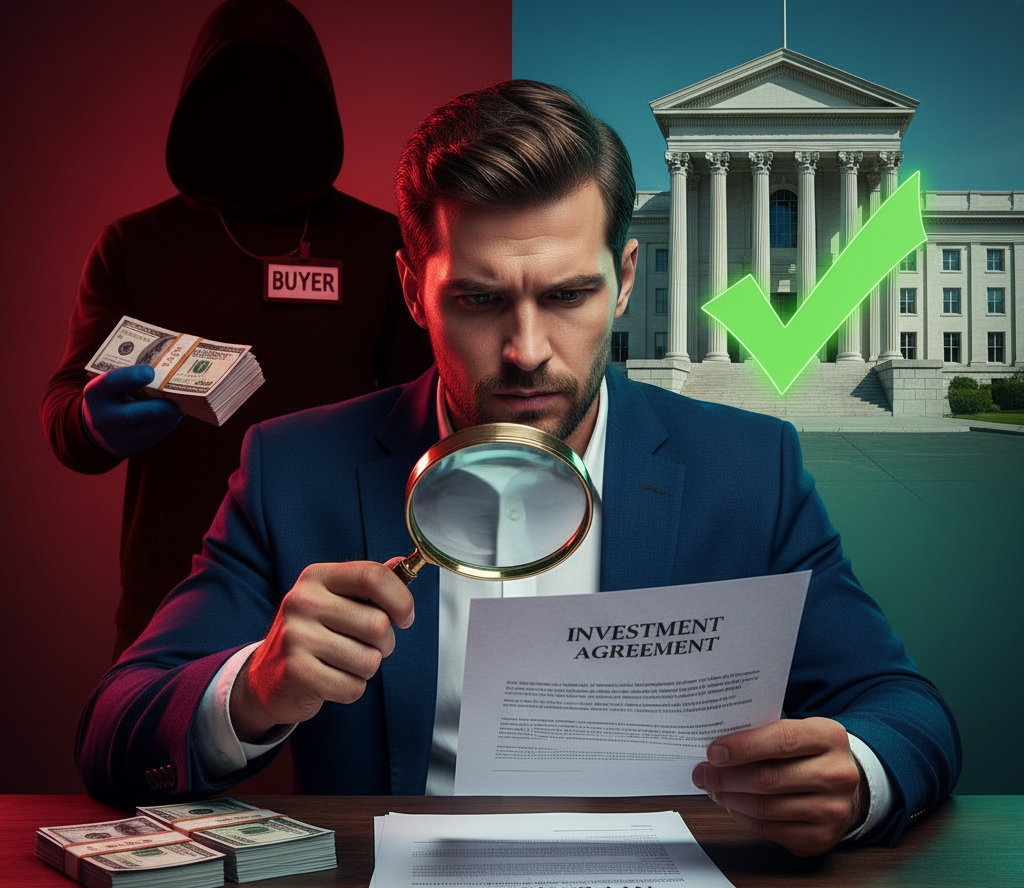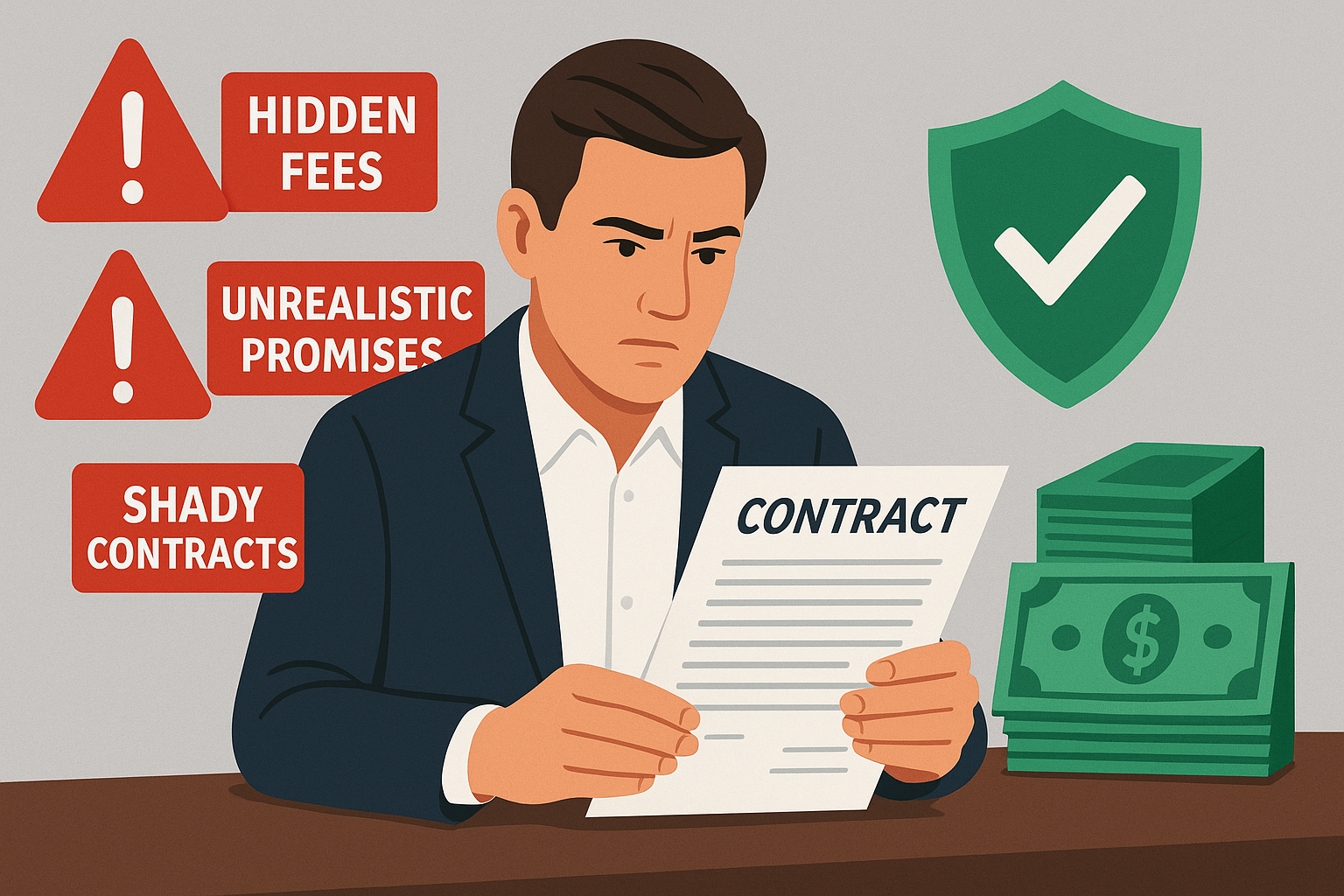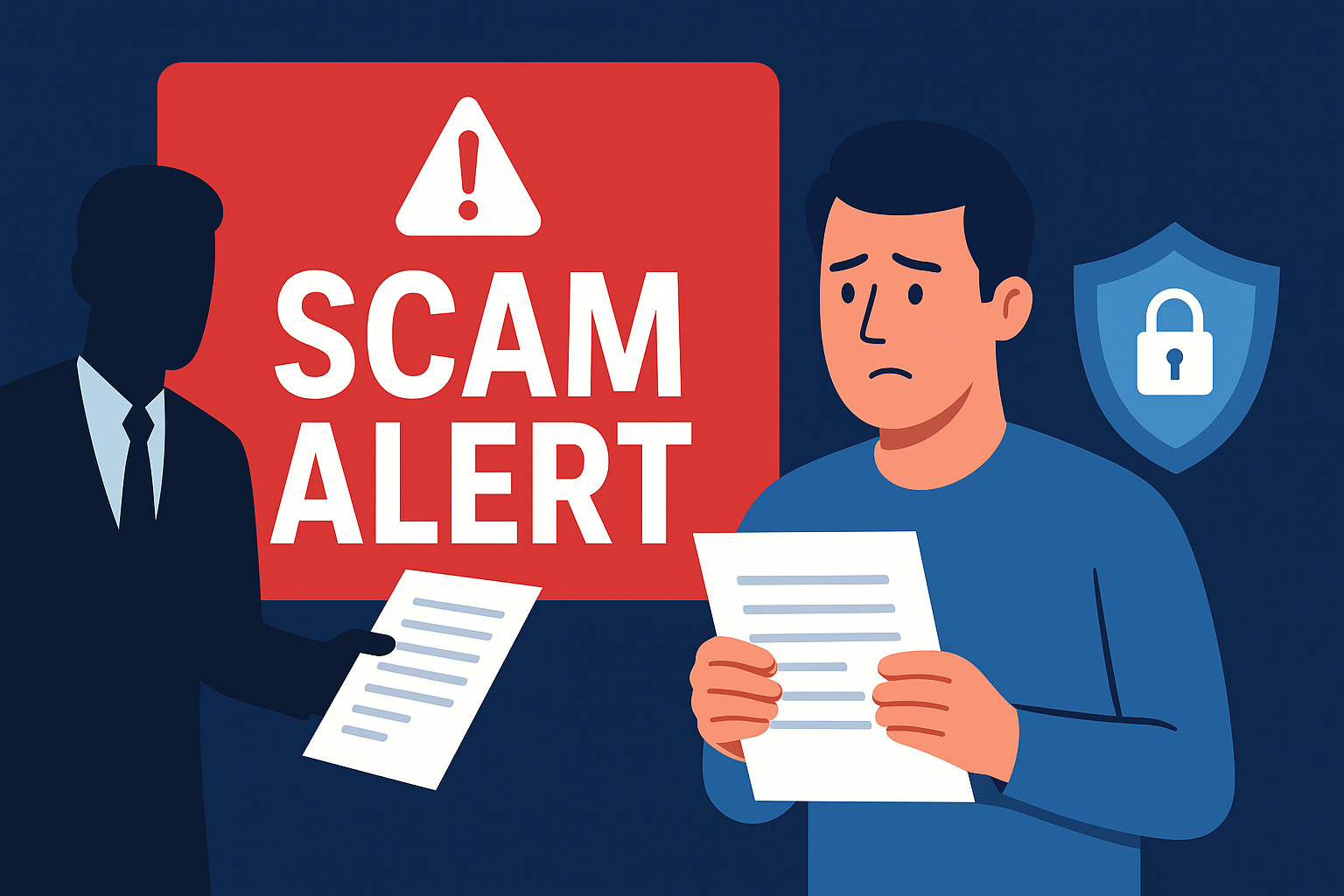Selling a structured settlement can provide financial flexibility, but it also exposes you to potential risks. In 2025, scammers have become more sophisticated, using professional websites, fake reviews, and misleading contracts to trick individuals into giving up their settlement payments for little or nothing in return. Fake structured settlement buyers often promise quick cash, high lump sums, and easy approval, but their real goal is to exploit your trust.

Knowing how to spot a fake buyer is crucial for protecting your financial future. While some scams are obvious, many are cleverly disguised to look legitimate. This guide will break down the red flags, provide practical steps to verify a buyer’s credibility, and highlight the most common tactics used by fraudsters.
If you’re considering selling your structured settlement payments in 2025, use this article as your roadmap to avoid fraud and ensure you only work with reputable companies.
1. Lack of Licensing and Accreditation
A legitimate structured settlement buyer must comply with state and federal laws, often requiring licensing. Fake buyers skip this step and rely on flashy websites instead.
Warning Signs:
- No business registration information.
- Missing Better Business Bureau (BBB) profile.
- No proof of licenses in your state.
What to Do:
- Verify the buyer with your state’s attorney general’s office.
- Check their BBB rating and complaint history.
2. Unrealistic Offers That Seem Too Good to Be True
Scammers lure sellers with exaggerated offers, such as “We’ll pay you double the market value.” Once you’re hooked, they lower the offer or disappear completely.
What to Do:
- Always compare multiple quotes.
- Be cautious if one company’s offer is dramatically higher than the rest.
3. Hidden or Upfront Fees
Fake buyers often demand “processing fees” or “administrative costs” before the deal closes. These payments vanish, and the scammer disappears.
What to Do:
- Never pay upfront fees.
- Work only with buyers who deduct legitimate costs from the final payout.
4. No Transparent Contract
Fraudulent companies either refuse to provide written agreements or bury harmful clauses in the fine print.
What to Do:
- Demand a clear, written contract.
- Hire a lawyer to review it before signing.
5. No Court Approval Process
By law, selling structured settlement payments requires a judge’s approval. Fake buyers will claim “We can skip the court process to save time.” This is a major red flag.
What to Do:
- Insist on court approval.
- Avoid anyone who suggests shortcuts.
6. Pressure Tactics and Limited-Time Offers
Scammers rush you with phrases like “You must sign today or the deal is gone.” They want to prevent you from doing proper research.
What to Do:
- Take your time.
- Compare multiple buyers and never rush into signing.
7. Fake Online Reviews and Testimonials
Scammers often create glowing fake reviews or testimonials from “satisfied clients.”
What to Do:
- Look for detailed reviews on trusted platforms like Trustpilot or BBB.
- Be suspicious of only 5-star ratings without any negatives.
8. Poor Communication and Lack of Professionalism
If the company avoids phone calls, uses generic email addresses (like Gmail), or refuses to share an office address, it’s likely fake.
What to Do:
- Call the company directly.
- Verify their business address on Google Maps.
Structured settlement buyers should offer transparency, professionalism, and legal compliance. If a company hides fees, avoids court approval, or pressures you with unrealistic promises, you’re likely dealing with a scam.
By recognizing these red flags—lack of licensing, upfront fees, fake reviews, and pressure tactics—you can confidently navigate the selling process. Always do your research, verify credentials, and consult with a financial advisor or attorney before signing anything.
Your structured settlement is a valuable financial asset. Don’t let fake buyers take advantage of it. In 2025, staying informed and vigilant is your best defense against scams.



